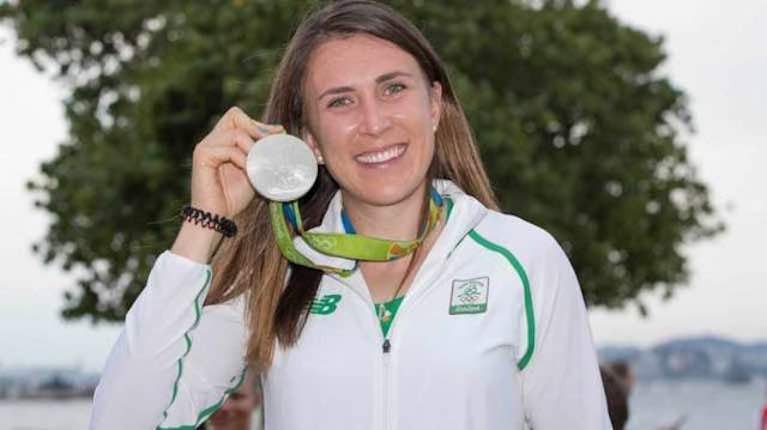Displaying items by tag: OFI
Olympic Rowers Join Annalise Murphy on OFI Athletes’ Commision
Olympic sailing silver medalist Annalise Murphy is joined by fellow Olympians, rowers Sanita Puspure and Claire Lambe in the latest Olympic Federation of Ireland (OFI) Athletes’ Commission.
The three are among eight athletes elected from a list of 13 for the commission’s 2022-24 term, as the OFI announced today.
All Irish Olympians were eligible to vote in an online platform for seven of the commission’s spots, with Ireland’s sole winter sport candidate Shane O’Connor automatically elected, as previously reported on Afloat.ie.
The regulations made allowance for a minimum gender balance of 40%. However, the election produced a 50/50 gender balance without need to invoke such mechanisms.
Murphy finished 18th overall in the Laser Radial at Tokyo 2020 last summer, and has since called time on her Olympic sailing career.
Also in Tokyo, Puspure reached the B final of the women’s single scull before withdrawing due to illness.
And before her retirement from international competition ins 2018, Lambe was a finalist in the women’s lightweight double sculls at Rio 2016.
The three women and O’Connor will sit alongside race walker Brendan Boyce, boxer Paddy Barnes, hockey international David Harte and modern pentathlete Natalya Coyle in the latest formation of the commission.
OFI president Sarah Keane congratulated the successful candidates and thanked all those who applied.
“We are confident that the athlete voice will be represented well and that you will continue to drive sport forward, each of you bringing with you a wealth of experience,” she said.
“I also want to thank the outgoing Athletes’ Commission who have worked really hard in important areas in sport, from athlete welfare and representation on decision making groups, to driving initiatives that Irish athletes wanted to back, such as anti-doping and tackling racism and discrimination.
“You have given this new commission a very solid point from which they can start.”
The outgoing OFI Athletes’ Commission was appointed in 2017, and consisted of Shane O’Connor (chair), Gavin Noble (vice chair), David Harte (also a member of the EOC Athletes’ Commission), David Gillick (also an athlete representative in Sport Ireland anti-doping initiatives), Kenneth Egan, James Nolan, Melanie Nocher and Judy Reynolds.
Over the coming weeks the new OFI Athletes’ Commission will meet informally, in a virtual setting, and will hold its first official meeting soon after.
Olympic Federation of Ireland Welcomes €36m Sport Budget Announcement
The Olympic Federation of Ireland today welcomed the Government’s budget announcement that Sport Ireland will receive an additional €36m in funding next year.
The OFI Board has welcomed the long-term planning that is now being applied to sport through the National Sports Policy, and investments like today’s budget announcement are strongly welcomed in allowing for the delivery of those policy commitments and affording some protection to the sector at this critical time.
Speaking today, Peter Sherrard, CEO of the Olympic Federation of Ireland said, “I thank the Government, Minister Catherine Martin and Minister Jack Chambers for today’s budget announcement. We understand that this additional contribution to Sport Ireland will provide much-needed support for the sector and will allow continued planning for high-performance athletes ahead of next year’s Tokyo Olympic Games and the Paris 2024 cycle. This is welcome news for our athlete community who deserve our support and are working tirelessly to represent Ireland on the global stage.”






























































